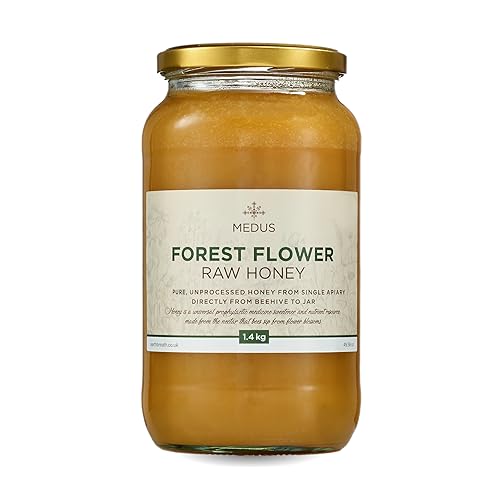Understanding German Honey: What Makes It Special
Unique Floral Sources and Regional Varieties
German honey stands out due to its diverse floral origins and the unique regional climates across the country. From the lush meadows of Bavaria to the expansive forests in the Black Forest, each region produces honey with distinct flavours and characteristics. For instance, honey harvested from the chestnut trees in the south has a robust, earthy tone, while the lighter acacia honey found in northern regions offers a delicate sweetness, making German honey not only a sweet treat but also a gastronomic exploration.
Traditional Beekeeping Practices
What truly sets German honey apart is the traditional beekeeping methods that many beekeepers still adhere to. These practices often include organic farming techniques that ensure the bees have access to pristine floral landscapes, free from pesticides and pollutants. By choosing honey produced under these sustainable methods, we not only support the bees but also enjoy a product that retains a high nutritional value, including beneficial enzymes and antioxidants.
Types of German Honey: A Sweet Selection
Floral Varieties
In Germany, the types of honey are as varied as the landscapes. Each floral source brings out new flavour profiles. For example, the rapeseed (canola) honey, commonly found, is creamy and has a mild taste, perfect for adding sweetness to tea. On the other hand, buckwheat honey offers a deep, rich flavour that’s excellent for baking or drizzling over cheeses.
Regional Specialties
We can also explore the regional specialties that add to this sweet selection. For instance, Spreewald honey is known for its delicate floral notes, while Thuringian forest honey can feature richer, spicier undertones, reflecting the wild flora of the area. Each type comes with its own set of health benefits, making them not only delicious but functional too.
Choosing the Right German Honey for Your Needs
Consider Usage and Pairing
When selecting German honey, it’s important to think about how we plan to use it. If we’re looking for a daily sweetener for drinks, the lighter varieties like acacia or linden honey suit best due to their subtle flavours. For a more pronounced taste that can be savoured, we might opt for buckwheat or heather honey, both of which offer unique qualities that elevate a dish.
Quality Indicators
Focusing on the quality of the honey is essential for ensuring we get the best product. Look for honey that is raw, unprocessed, and free from additives. A thick consistency often indicates purity as does a natural crystallisation, which occurs in high-quality honey. Clear labelling that describes floral sources can also help us make informed choices.
How to Use German Honey in Your Everyday Life
In the Kitchen
There are endless ways we can incorporate German honey into our daily routines. It can serve as a natural sweetener for our morning tea or coffee, providing a healthier alternative to sugar. In cooking, it can add depth to marinades or salad dressings, while also enhancing the flavour profiles of desserts like cakes and pastries. Using honey in smoothie bowls not only sweetens them but adds a unique character to our breakfast.
Health and Wellness Applications
Beyond culinary uses, we can harness the health benefits of German honey as well. A spoonful can soothe sore throats and support digestive health. Many also find it beneficial for skin treatments, as honey has natural antibacterial properties. Adding it to beauty routines can hydrate and revitalise skin when used as a mask or cleanser.
Where to Buy Quality German Honey: Our Top Picks
Dispelling the Myths on Where to Find It
Finding quality German honey can be both enjoyable and rewarding. We recommend exploring local farmers’ markets or specialty food shops which often stock regional varieties. These venues not only ensure fresh honey but also allow us to connect with producers. If we prefer the convenience of online shopping, dedicated websites focusing on local artisanal producers often feature an excellent selection of honeys.
Exploring Variety and Authenticity
When purchasing, let’s pay attention to labels and descriptions to ensure authenticity. Choose those that provide transparency regarding sourcing and production methods. Local beekeepers often share detailed information about their hives and the regions where the honey is harvested, giving us an opportunity to enjoy true German honey with all its rich stories.



















